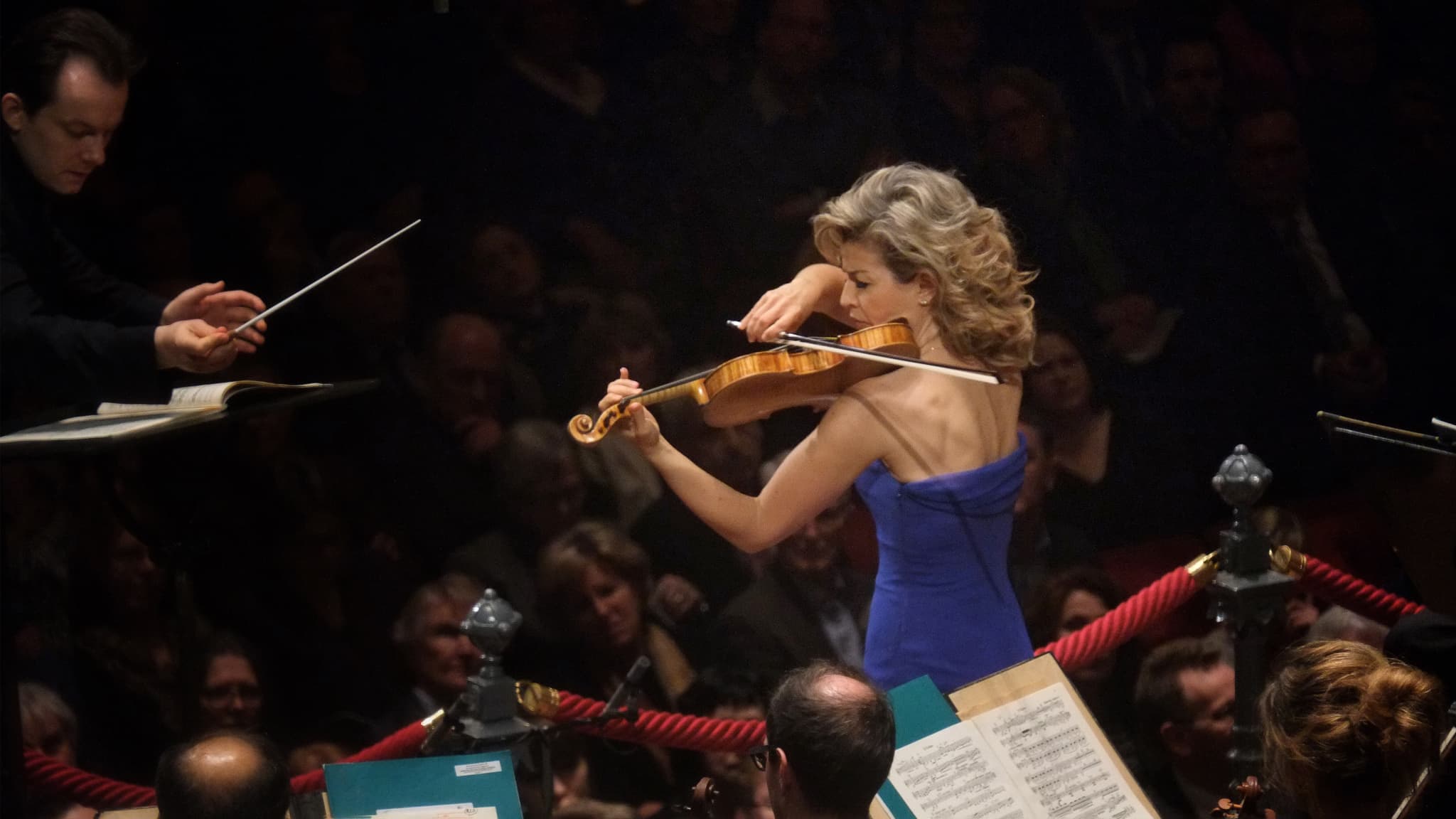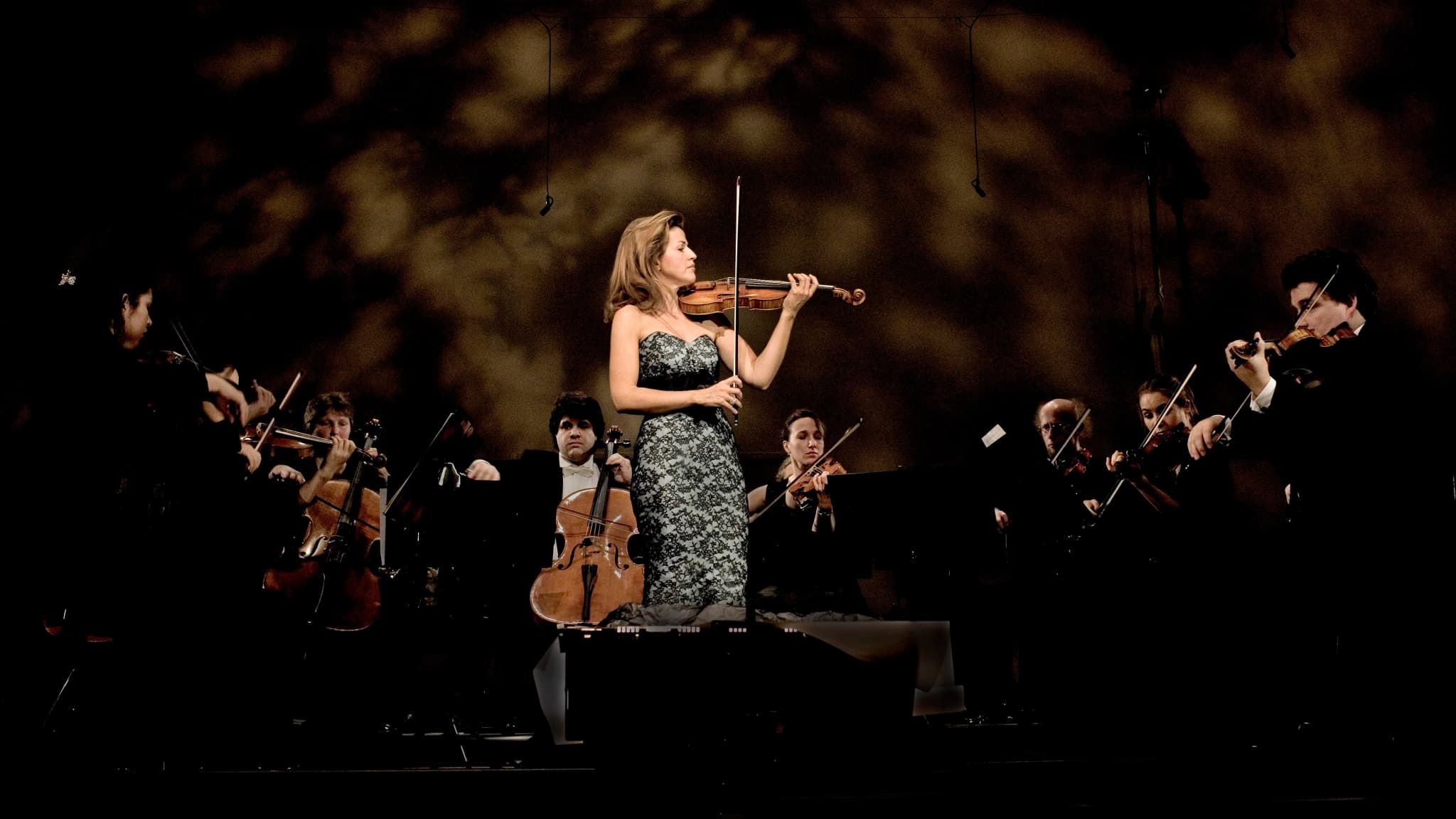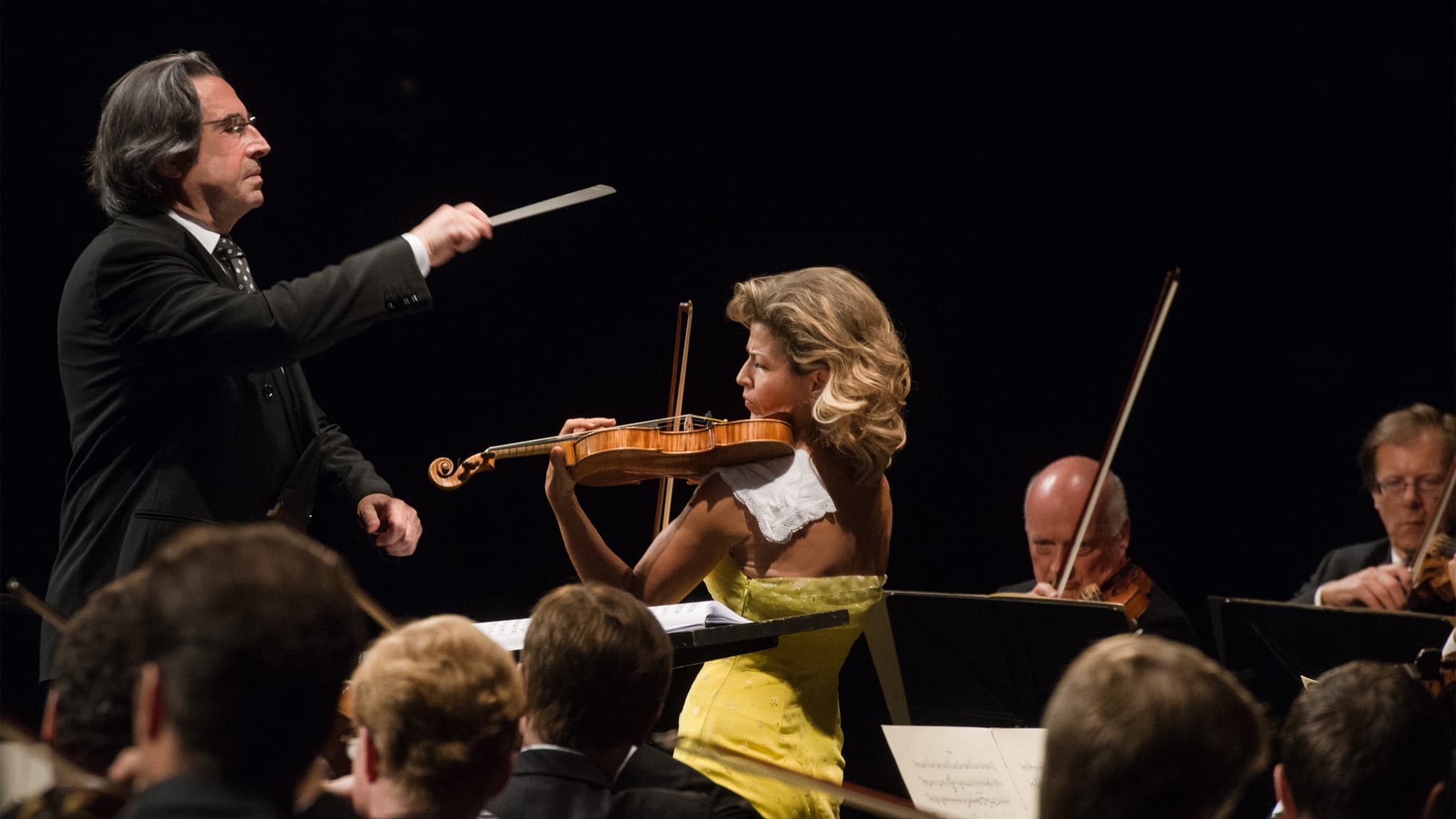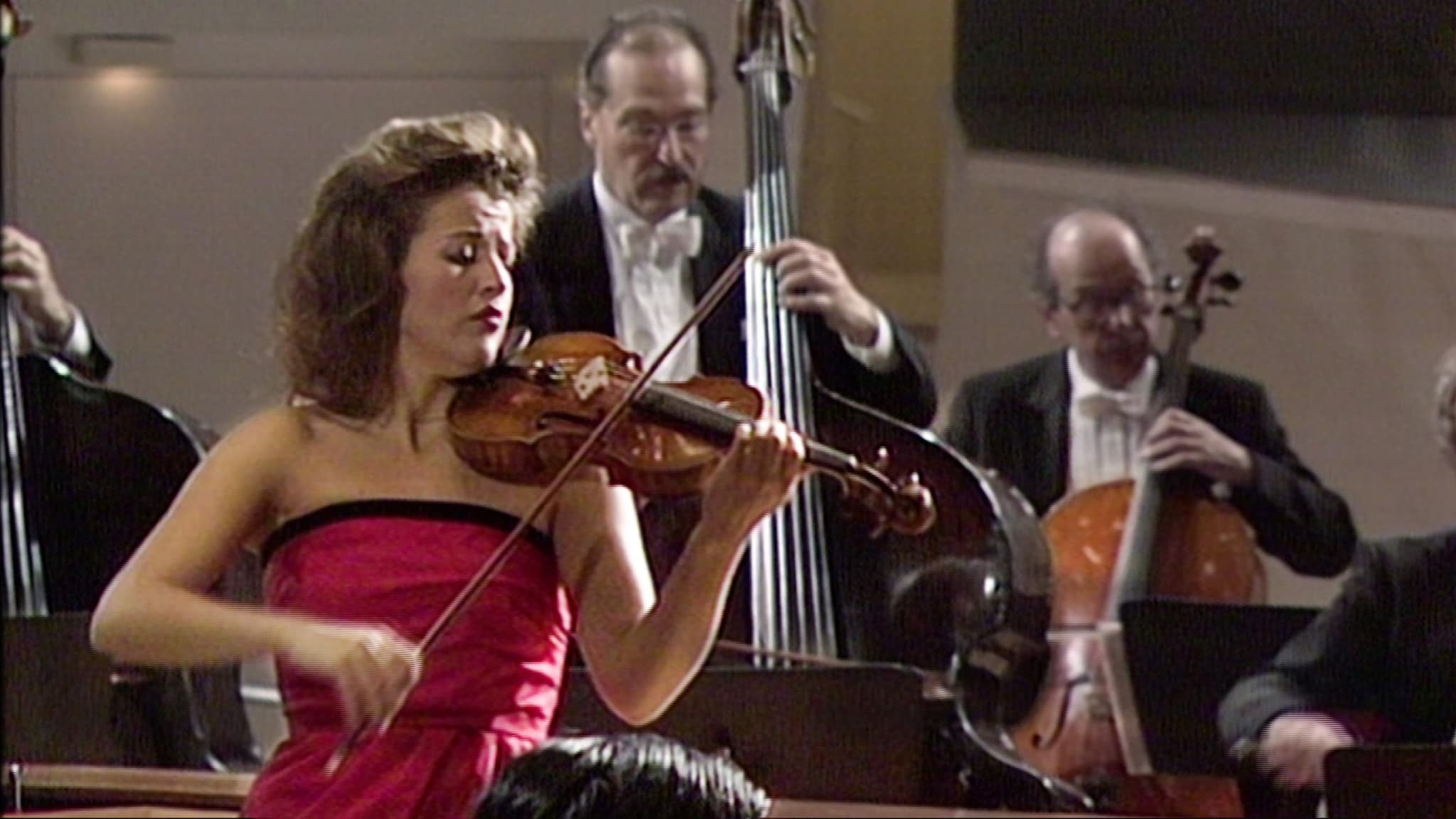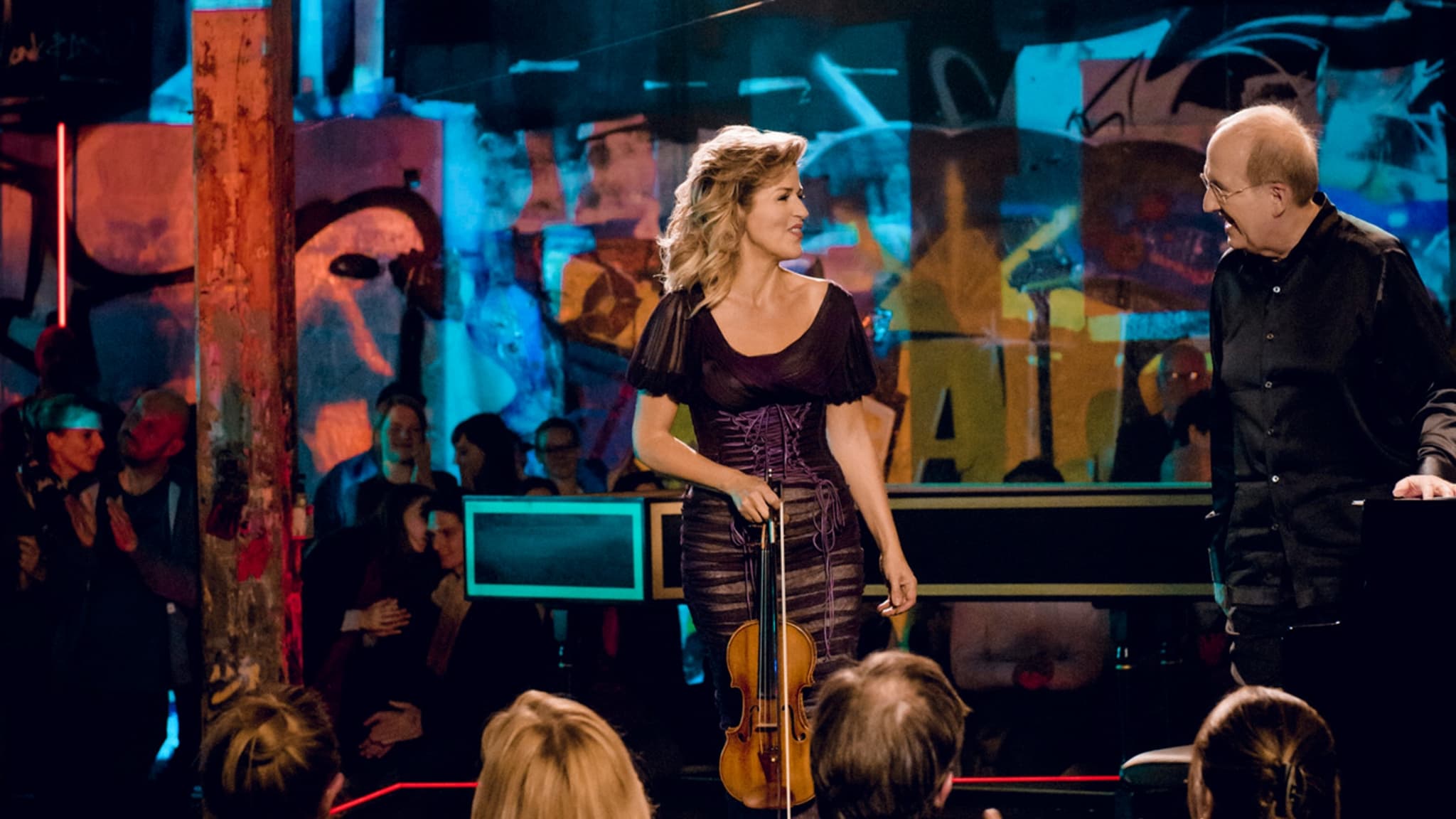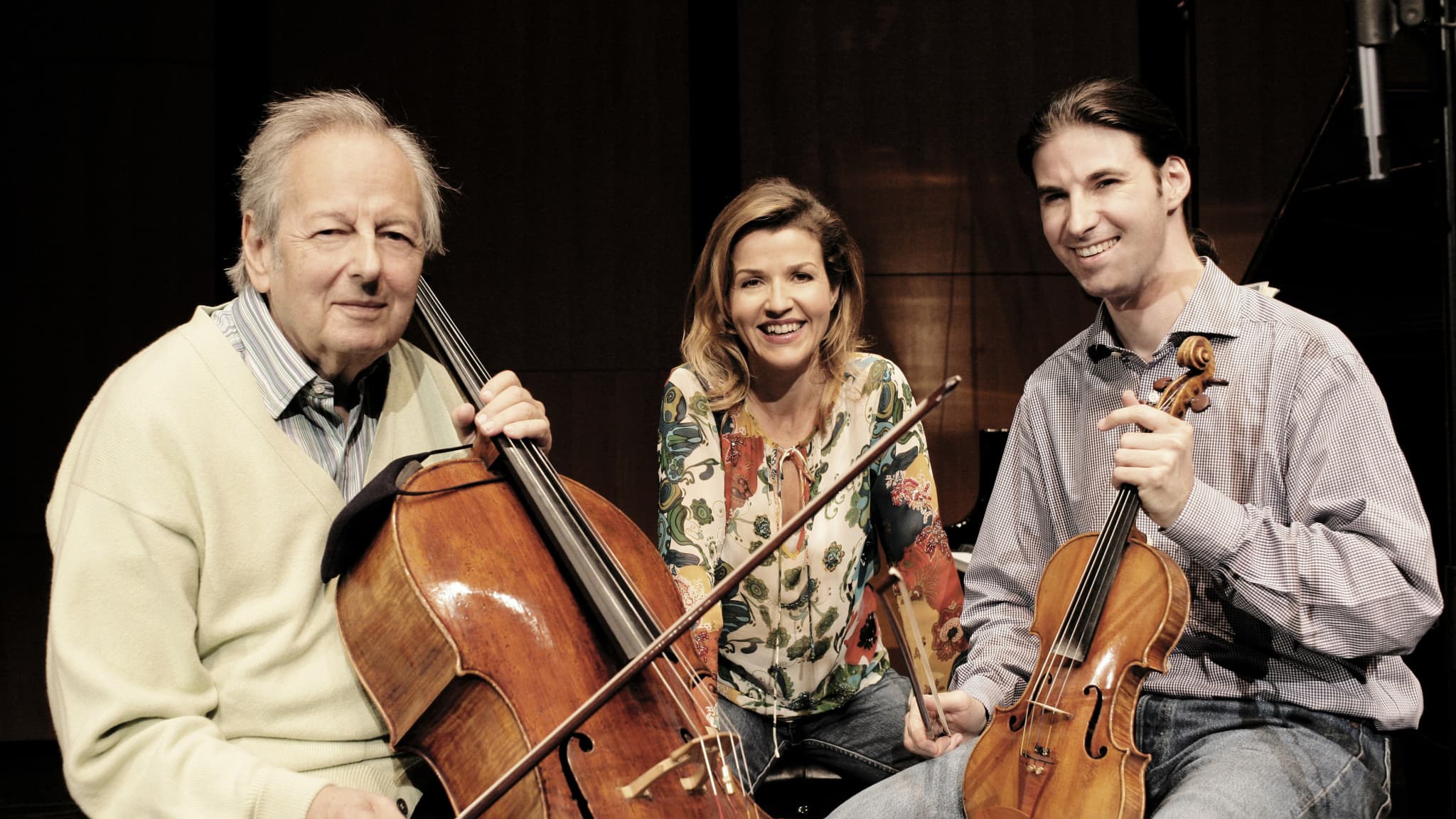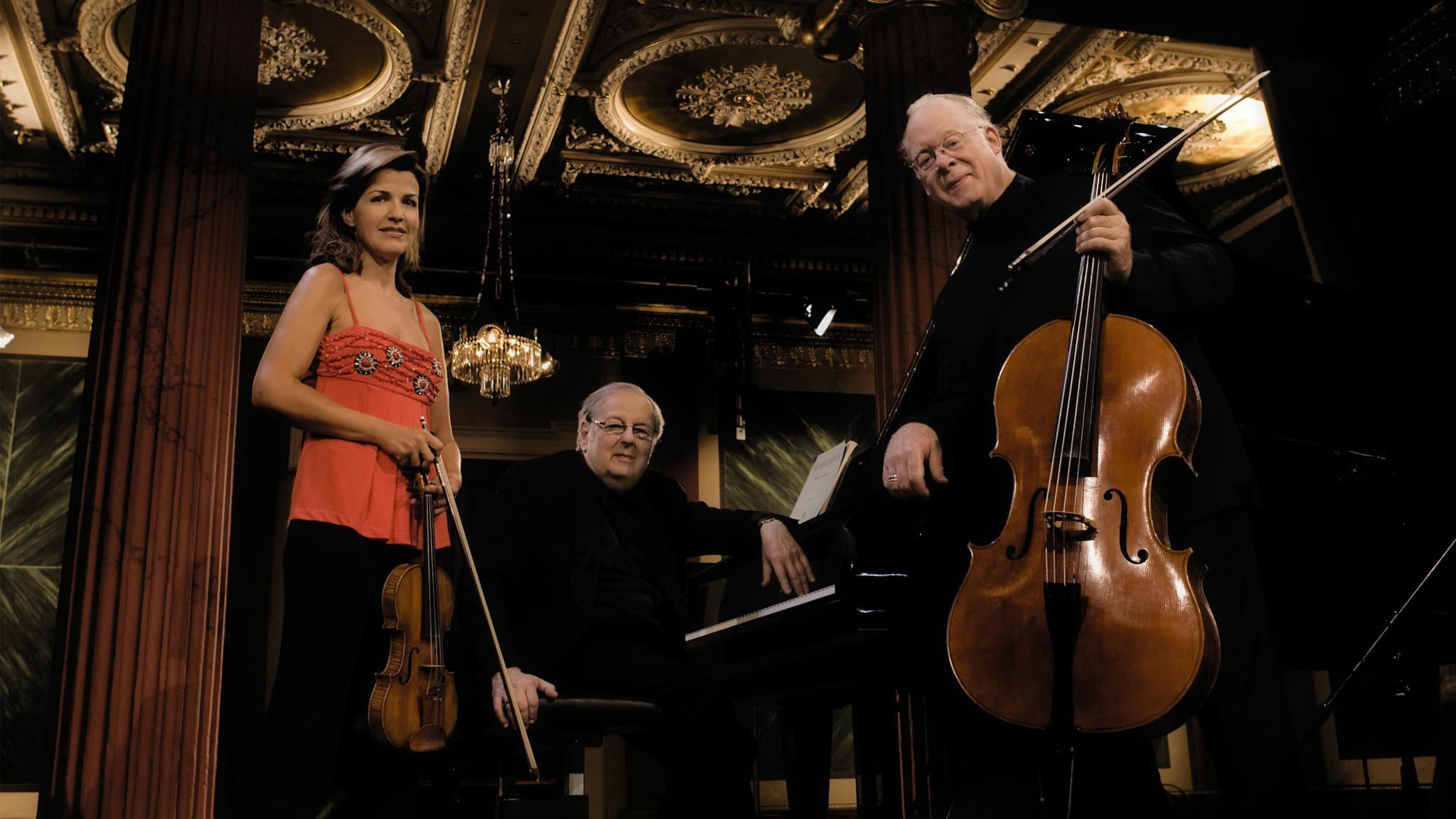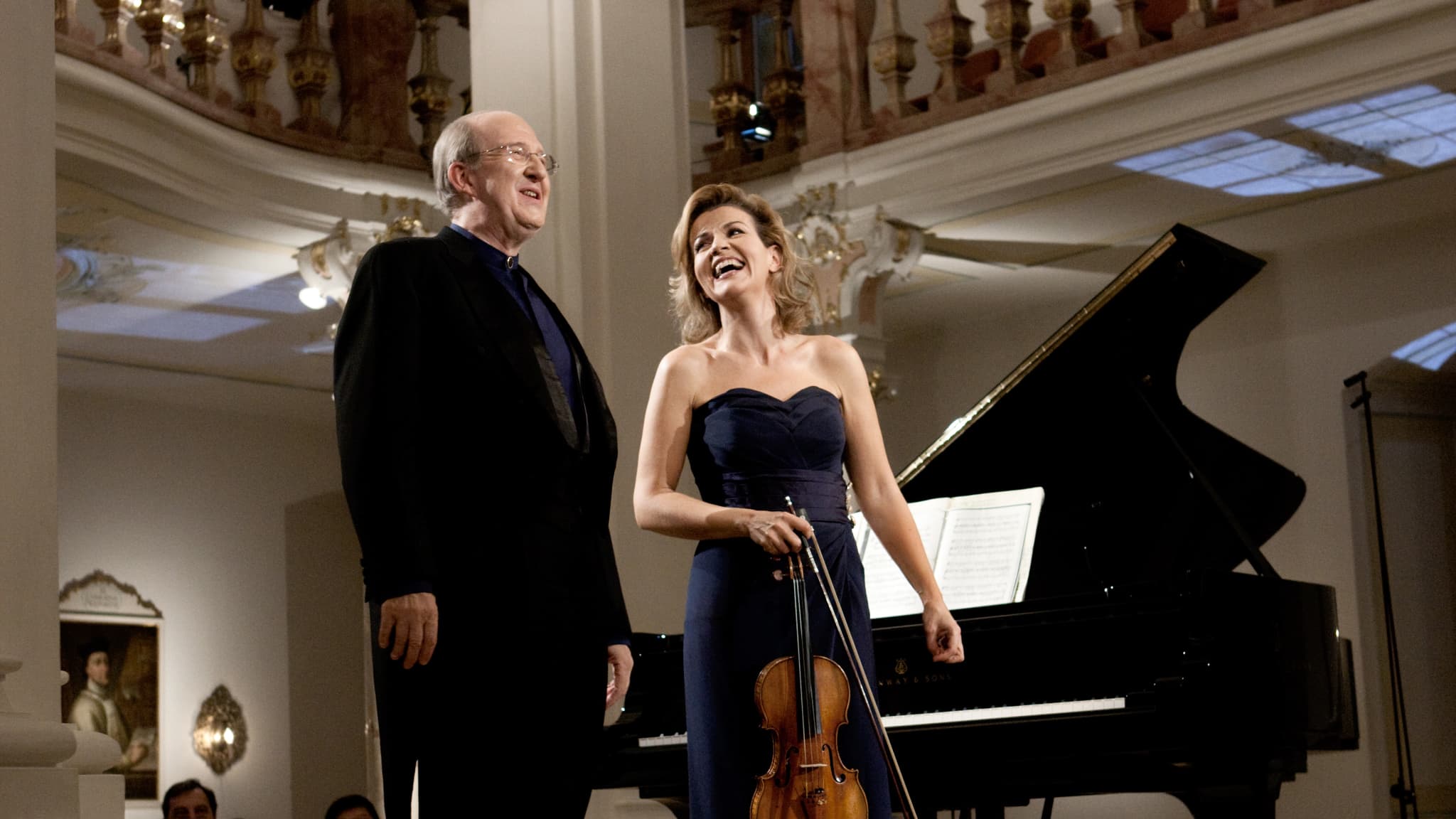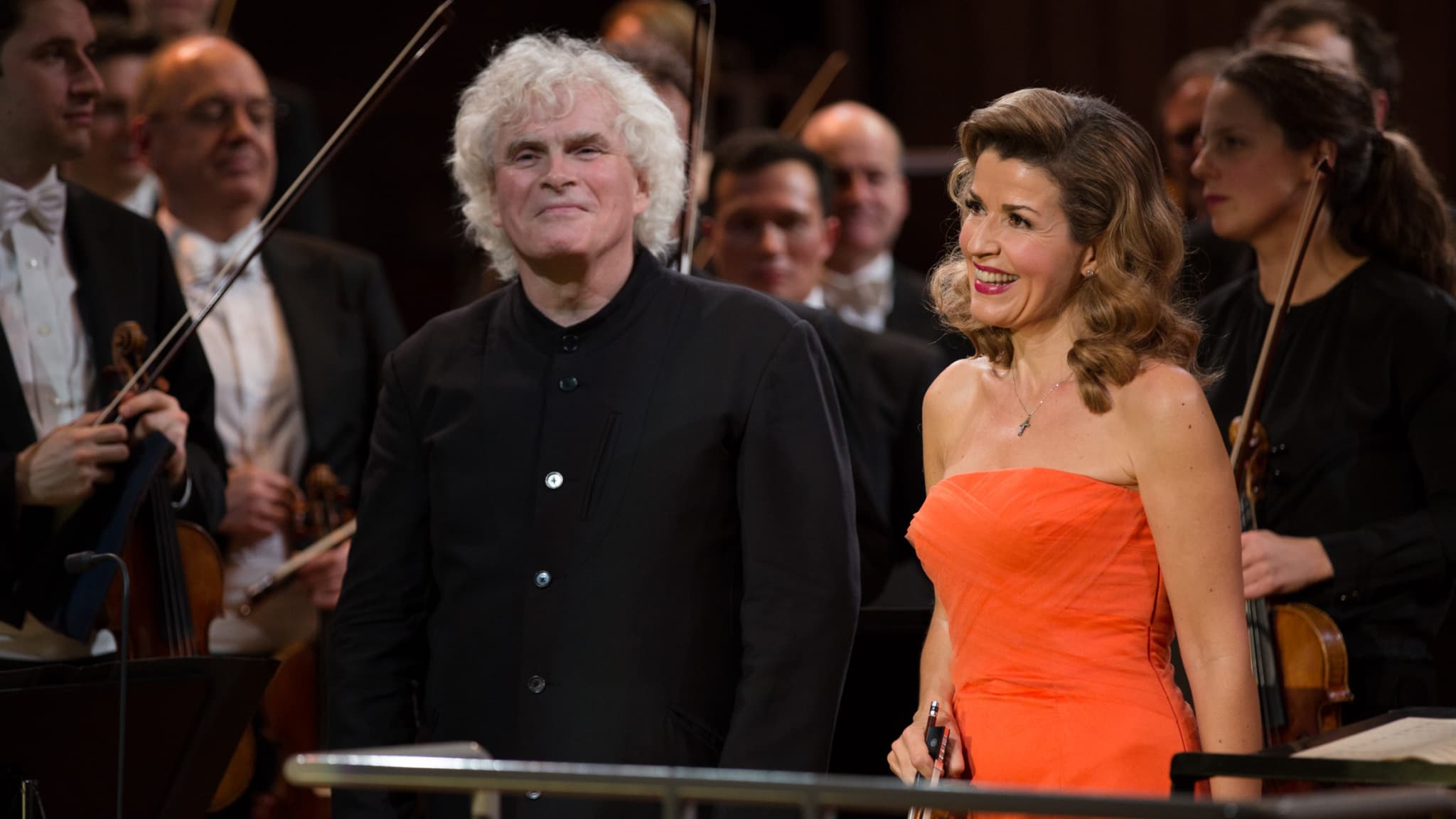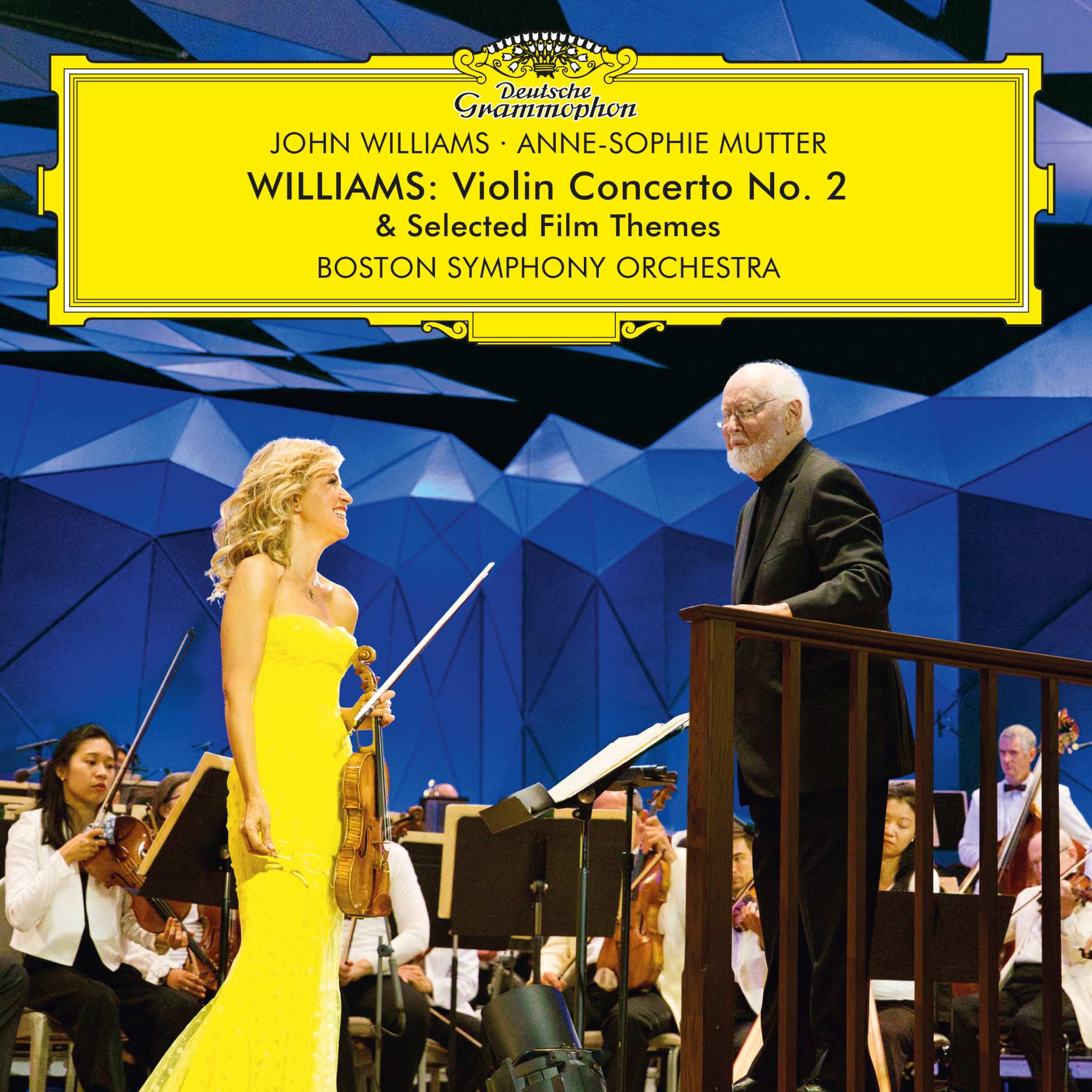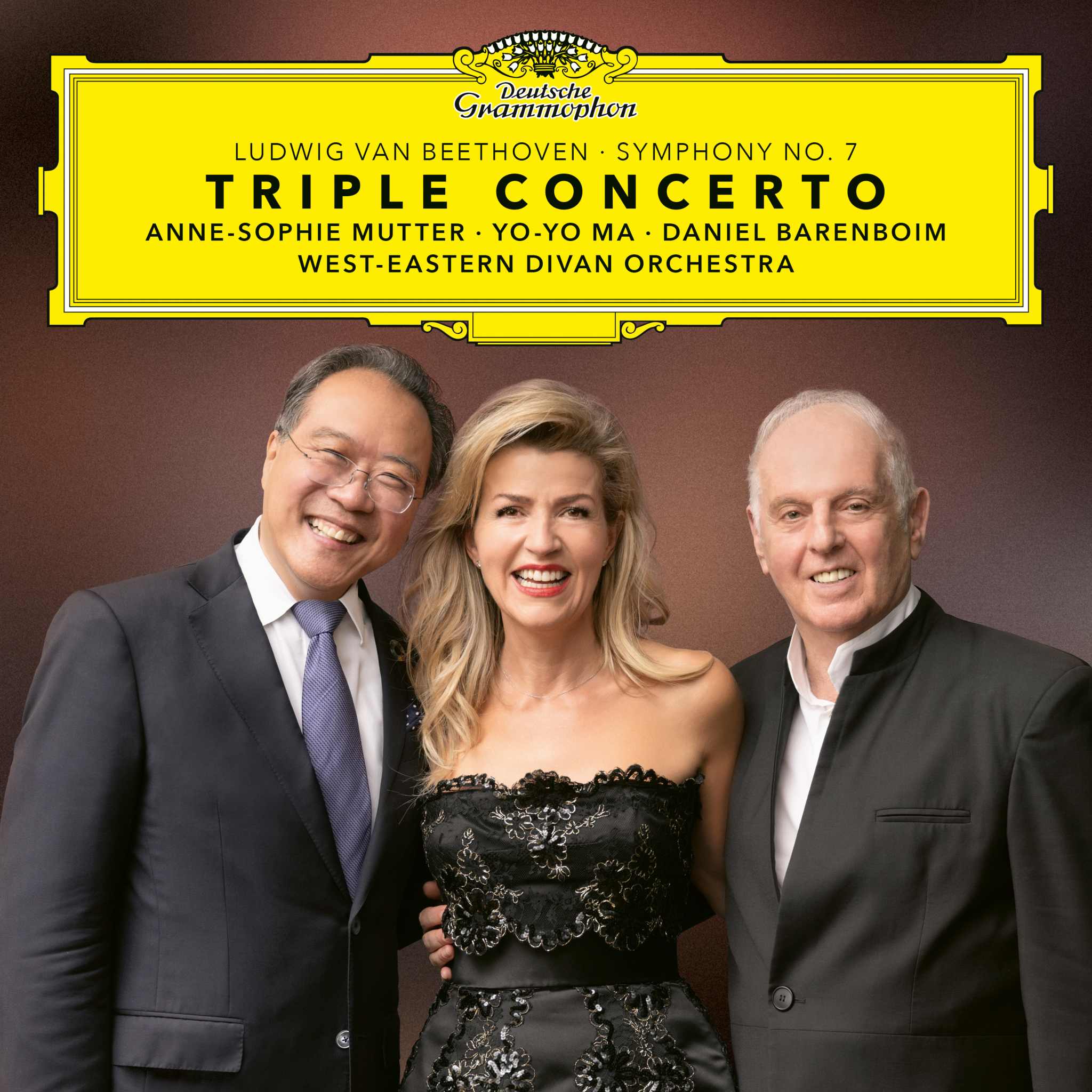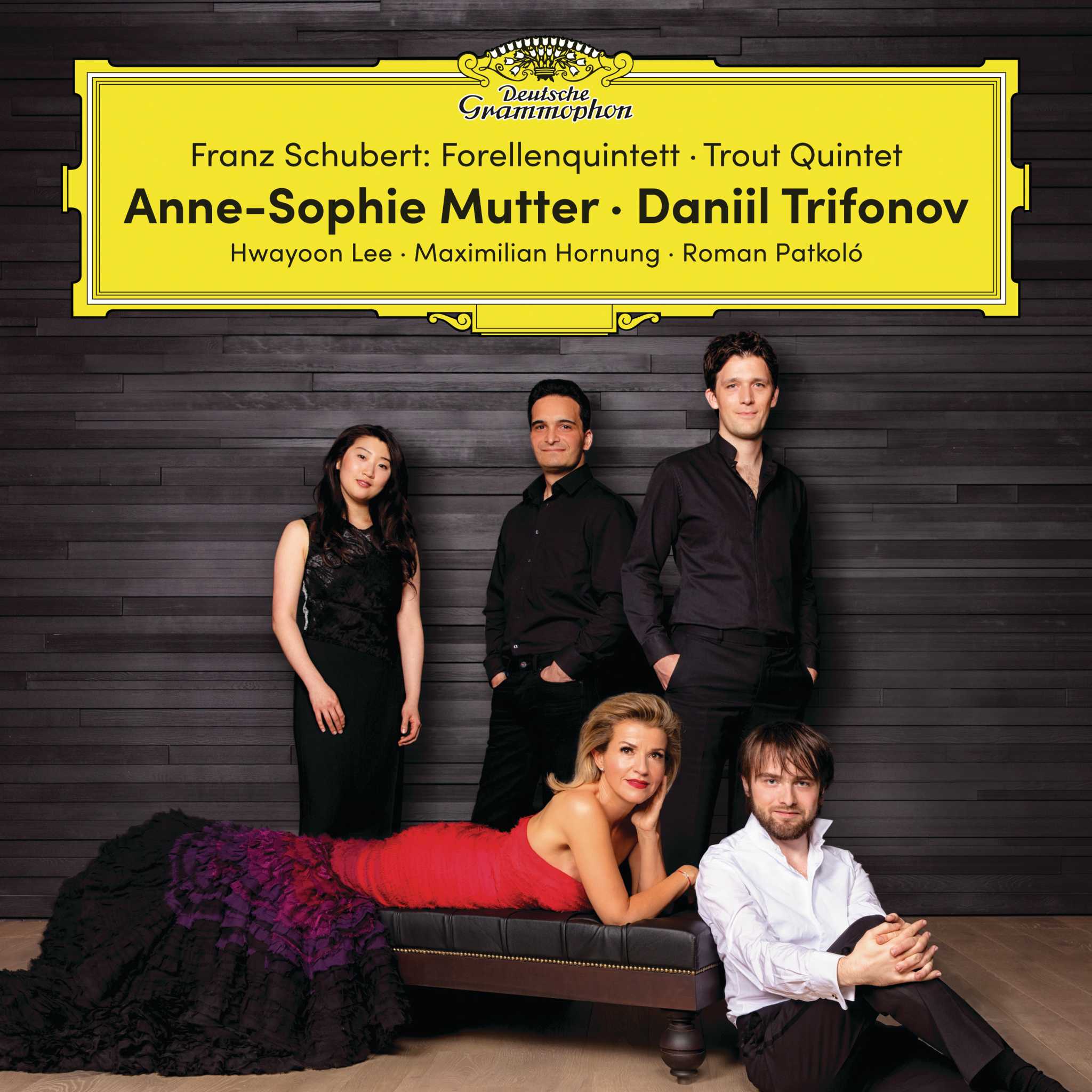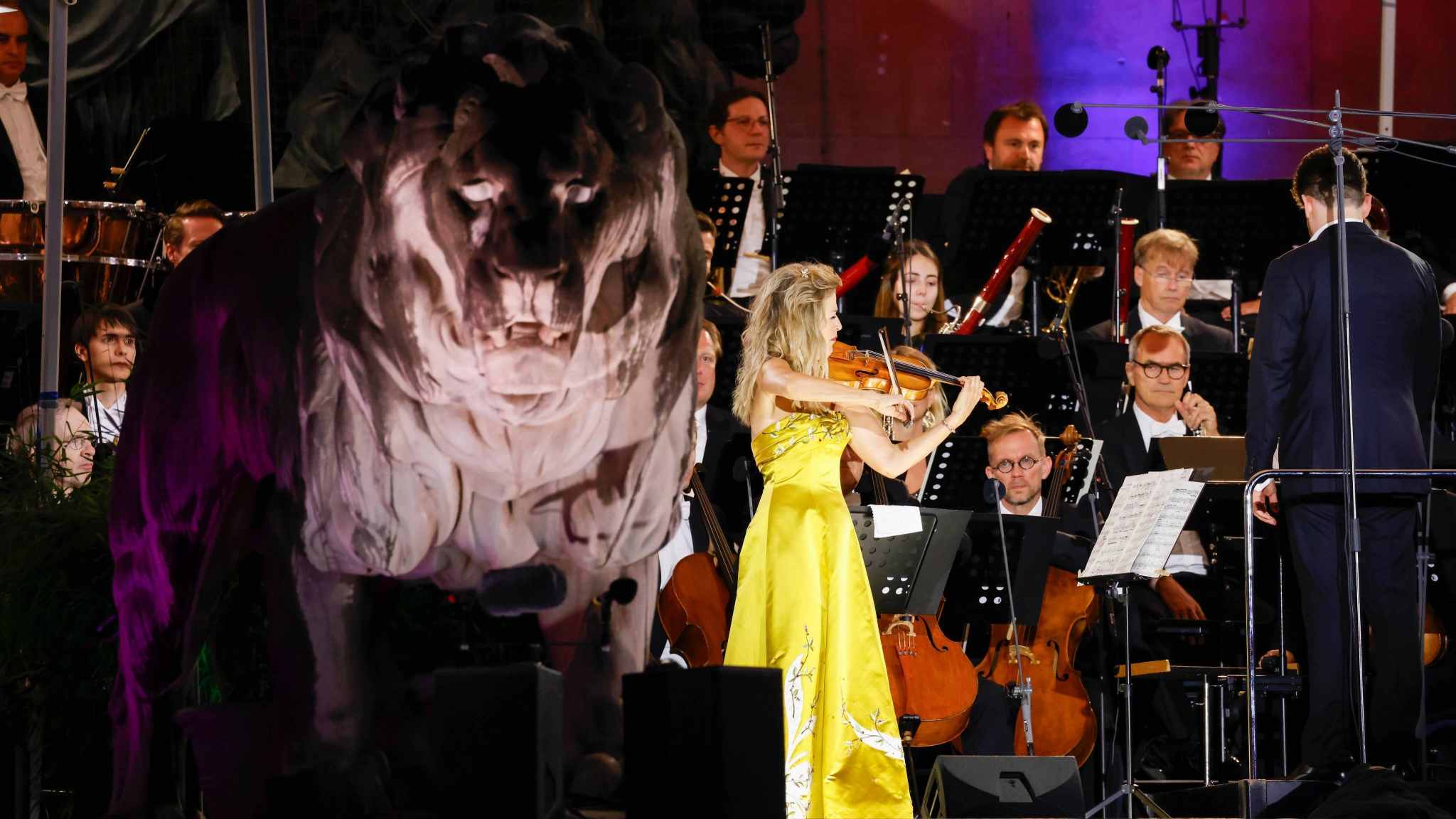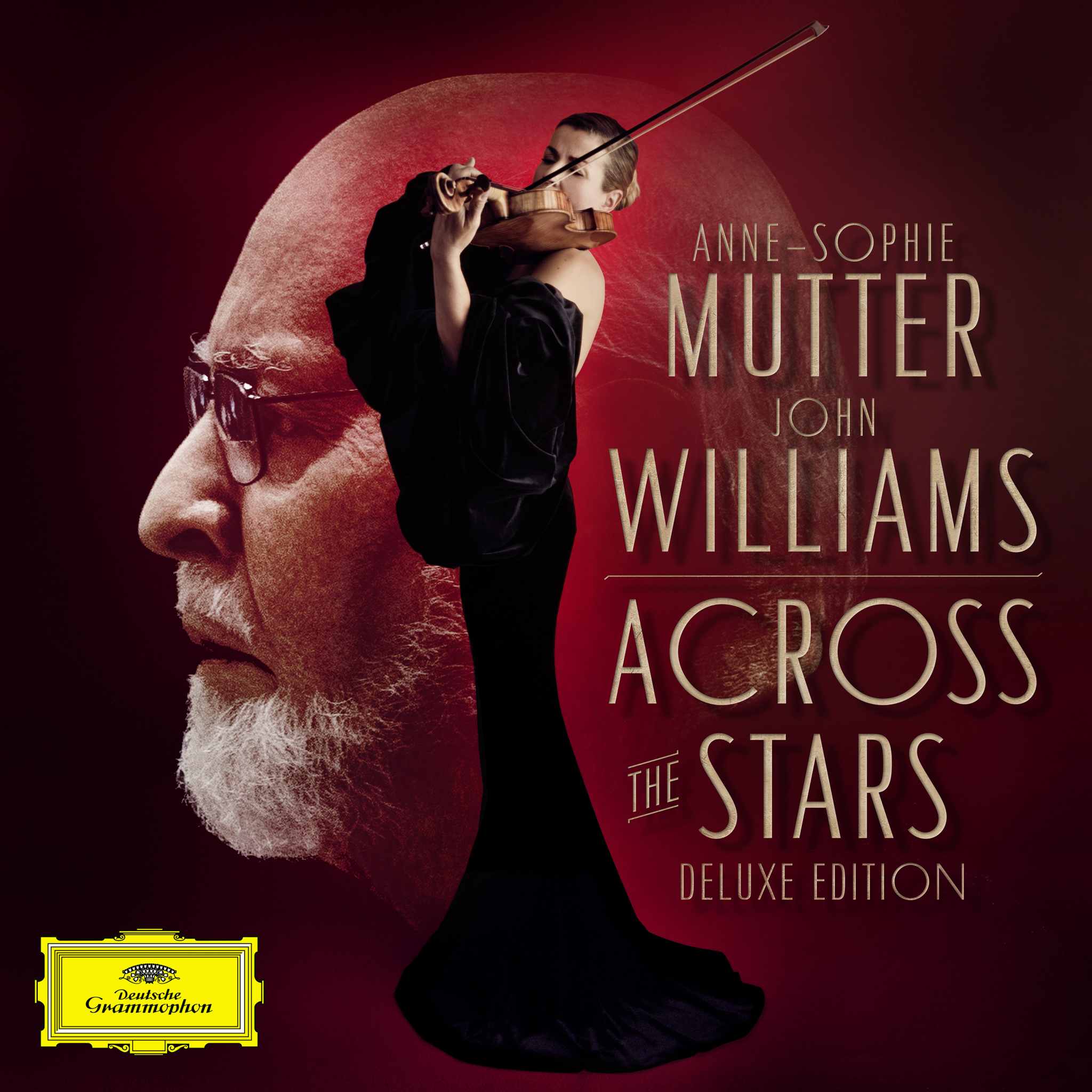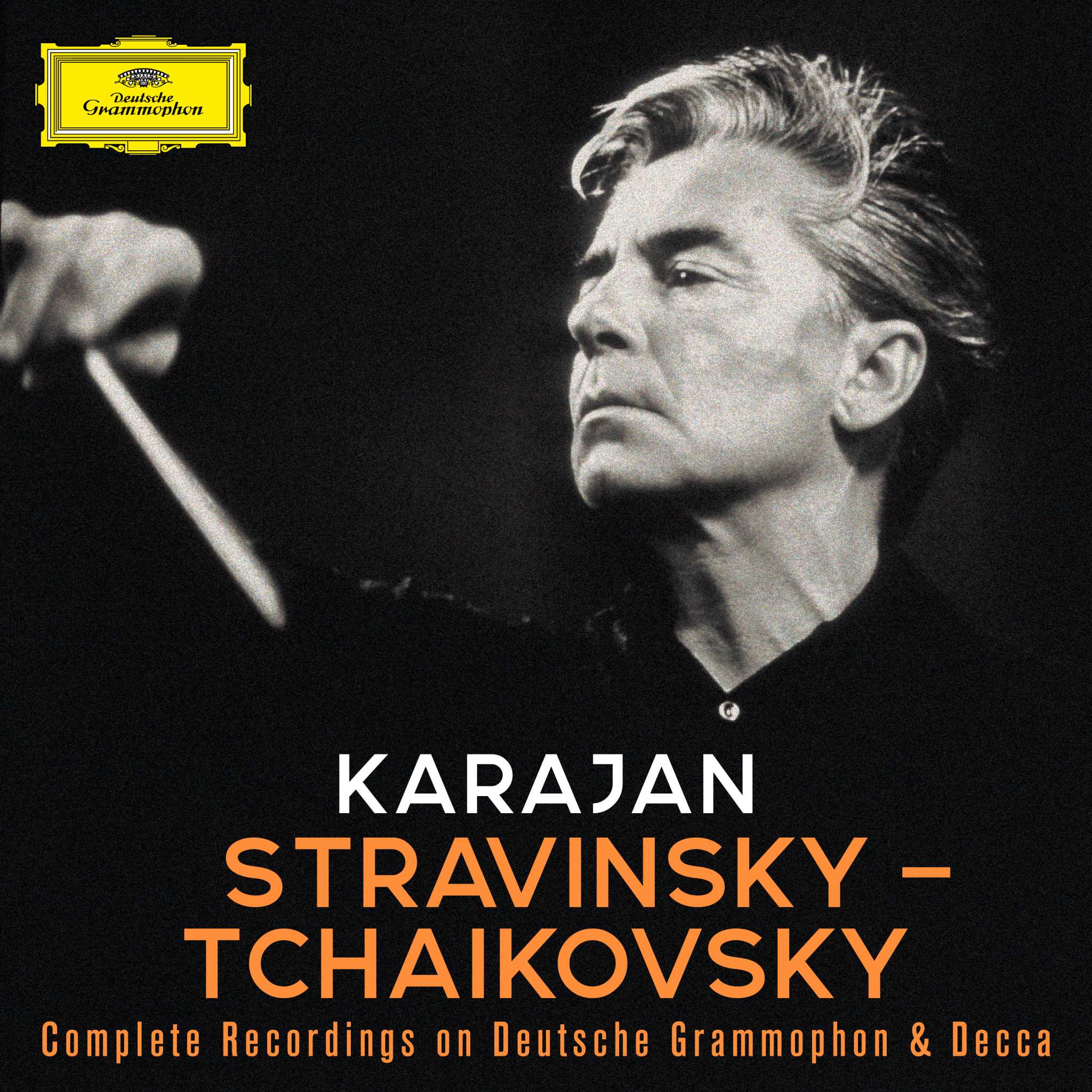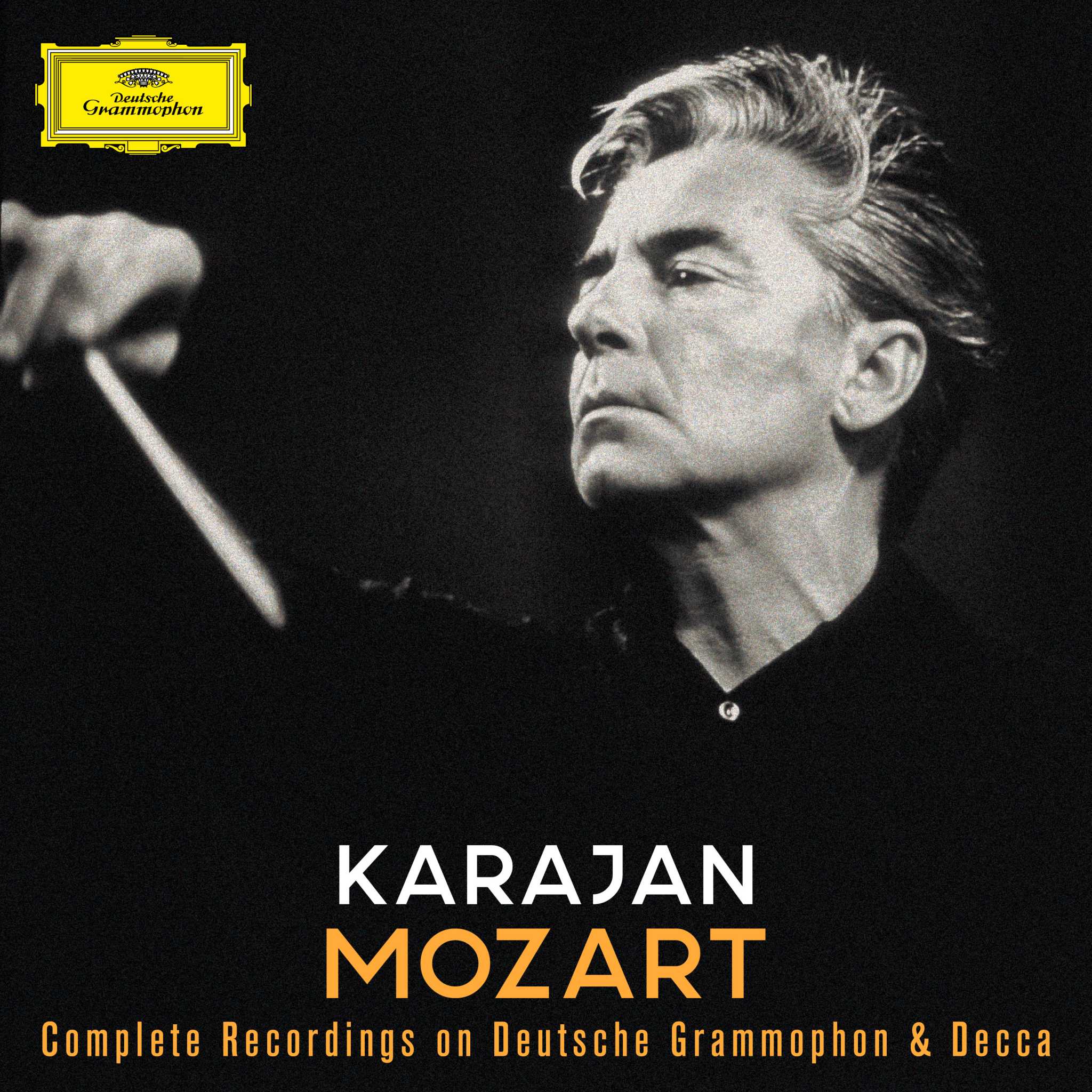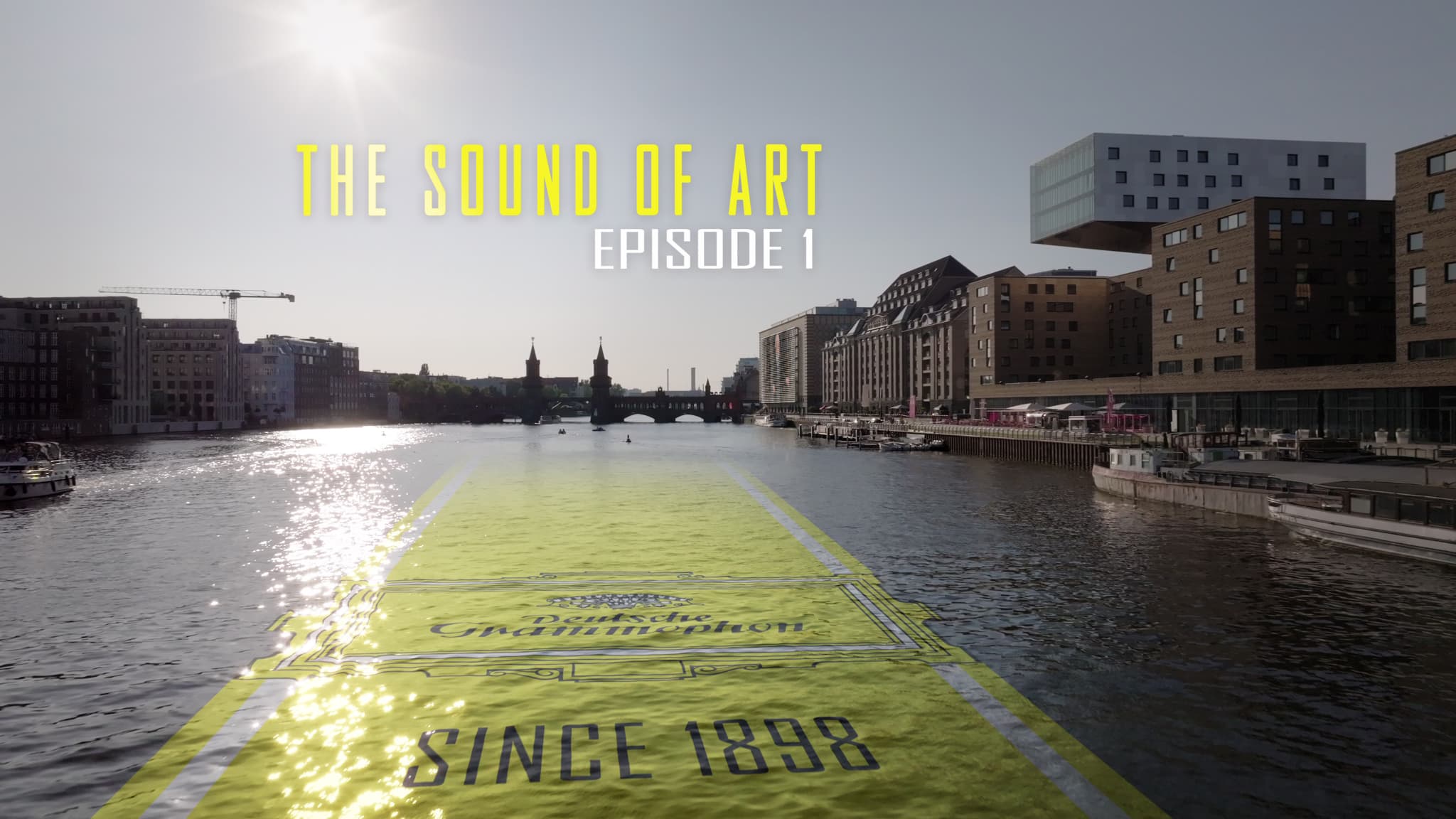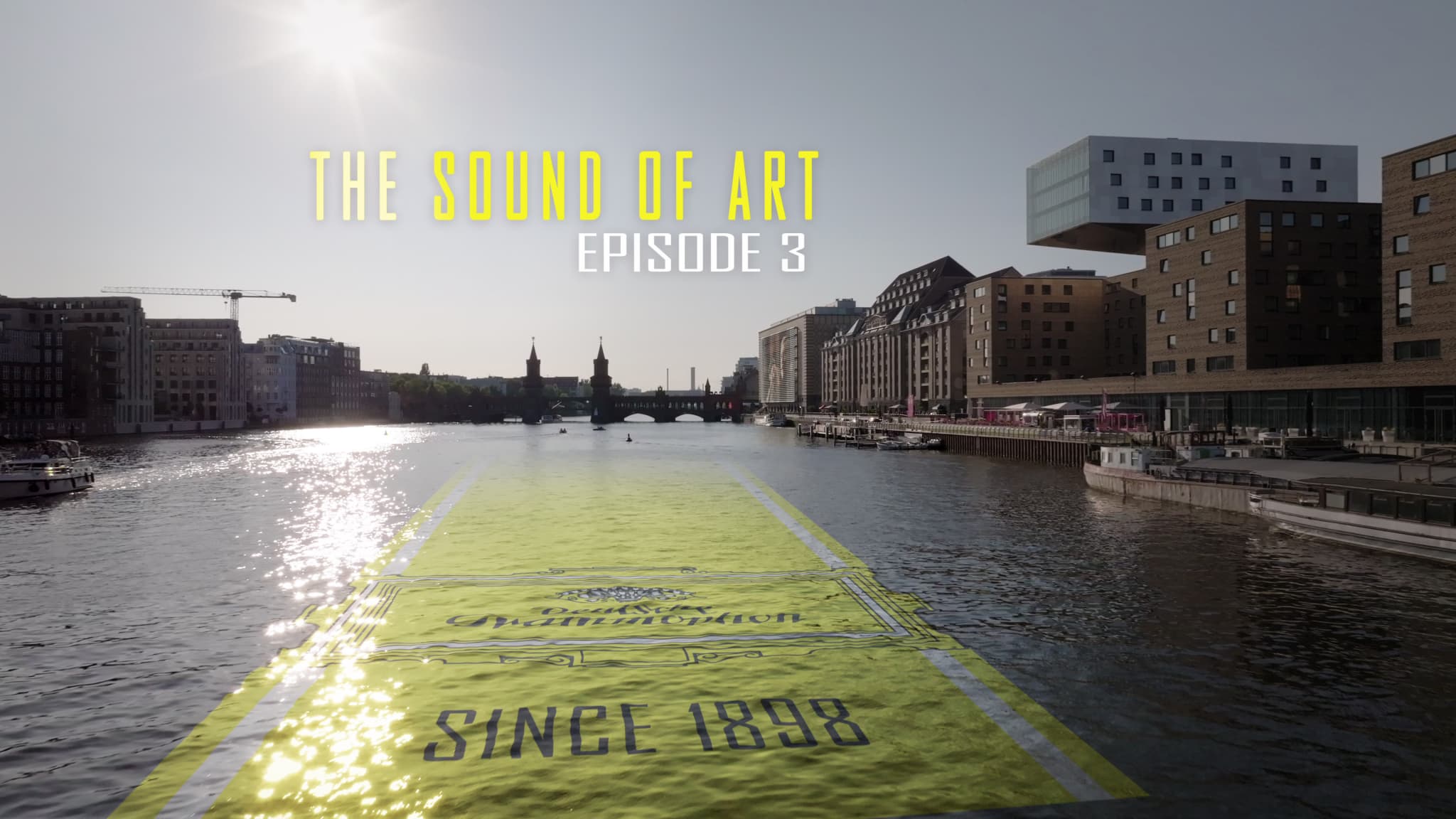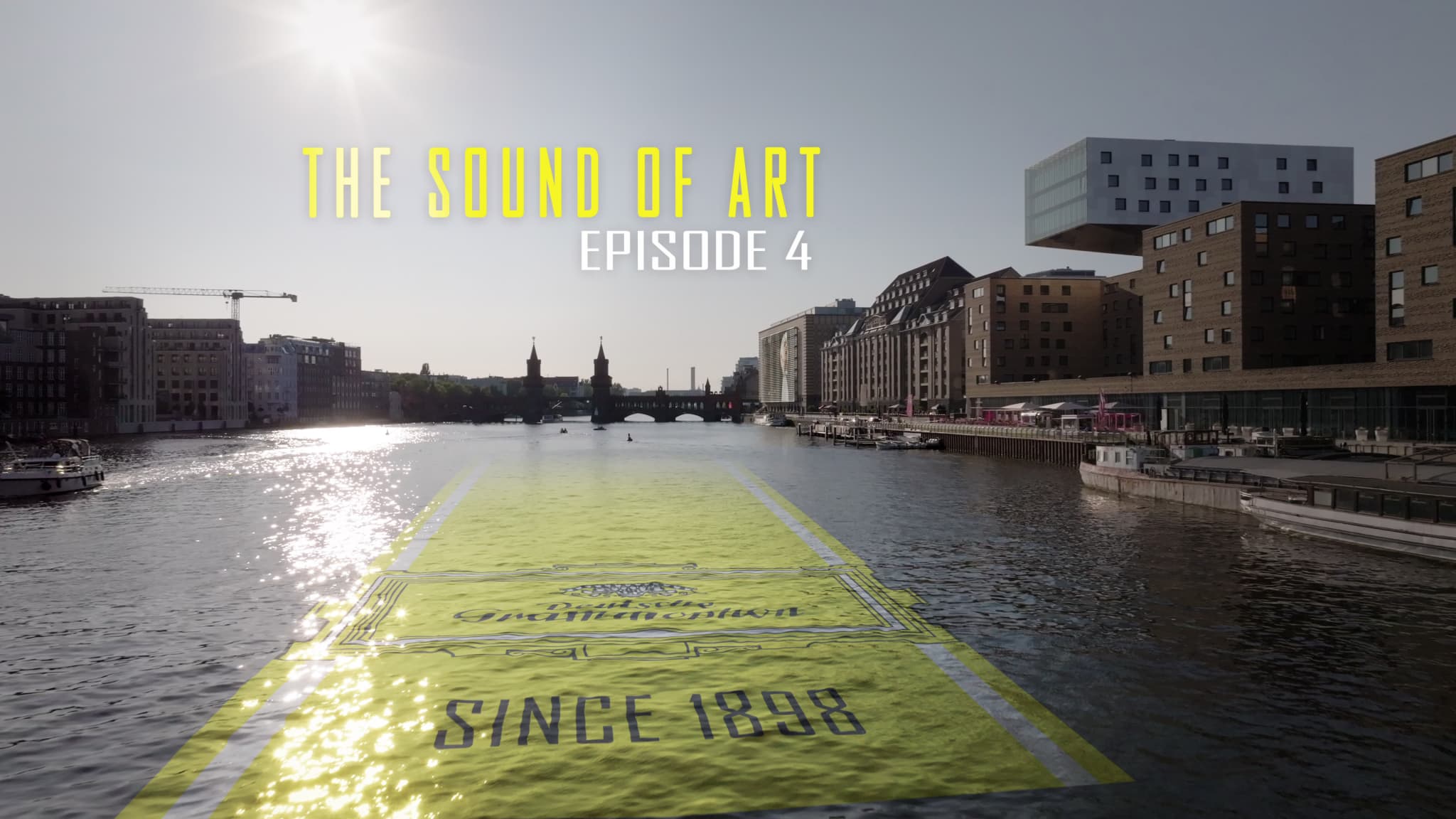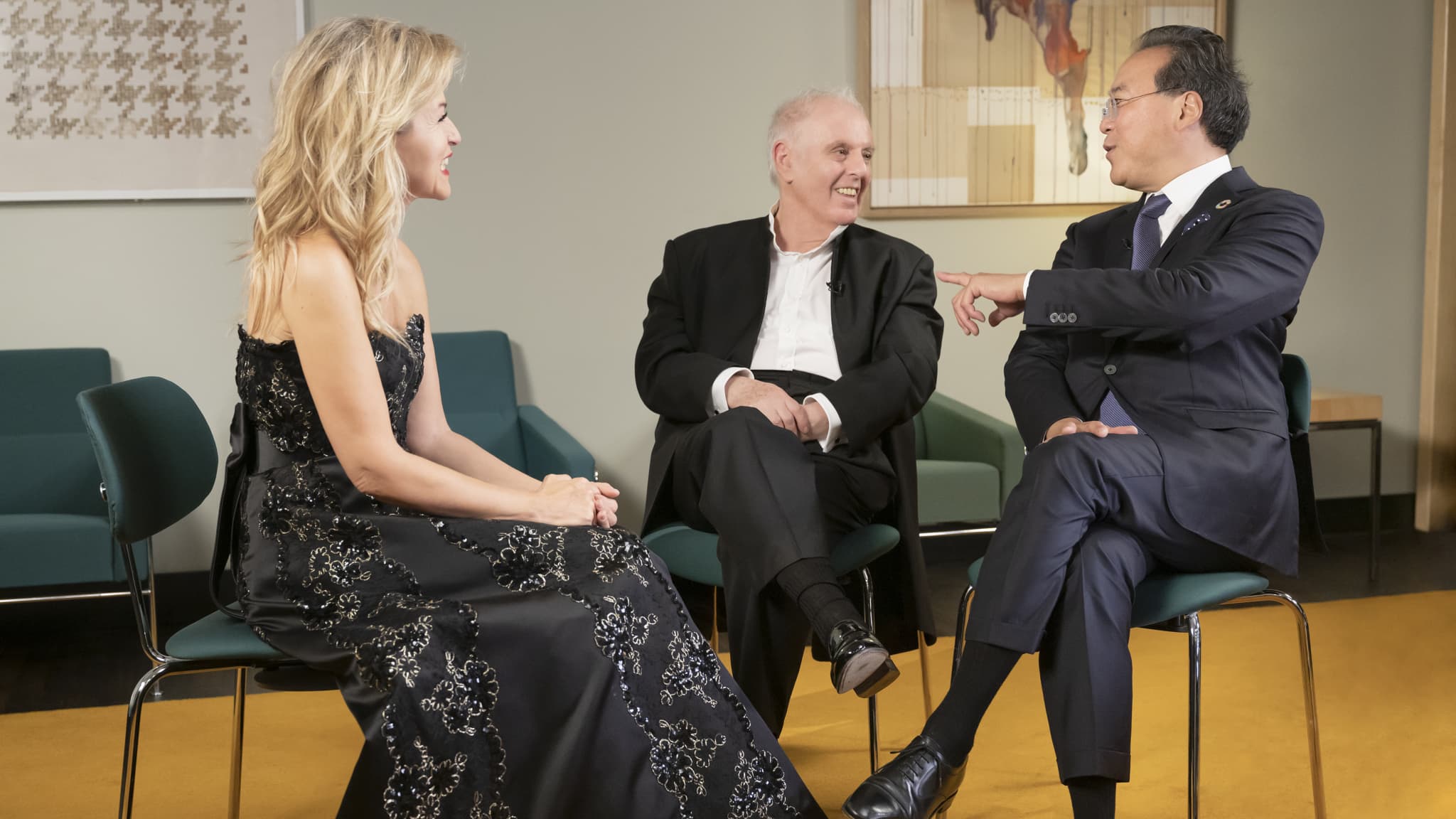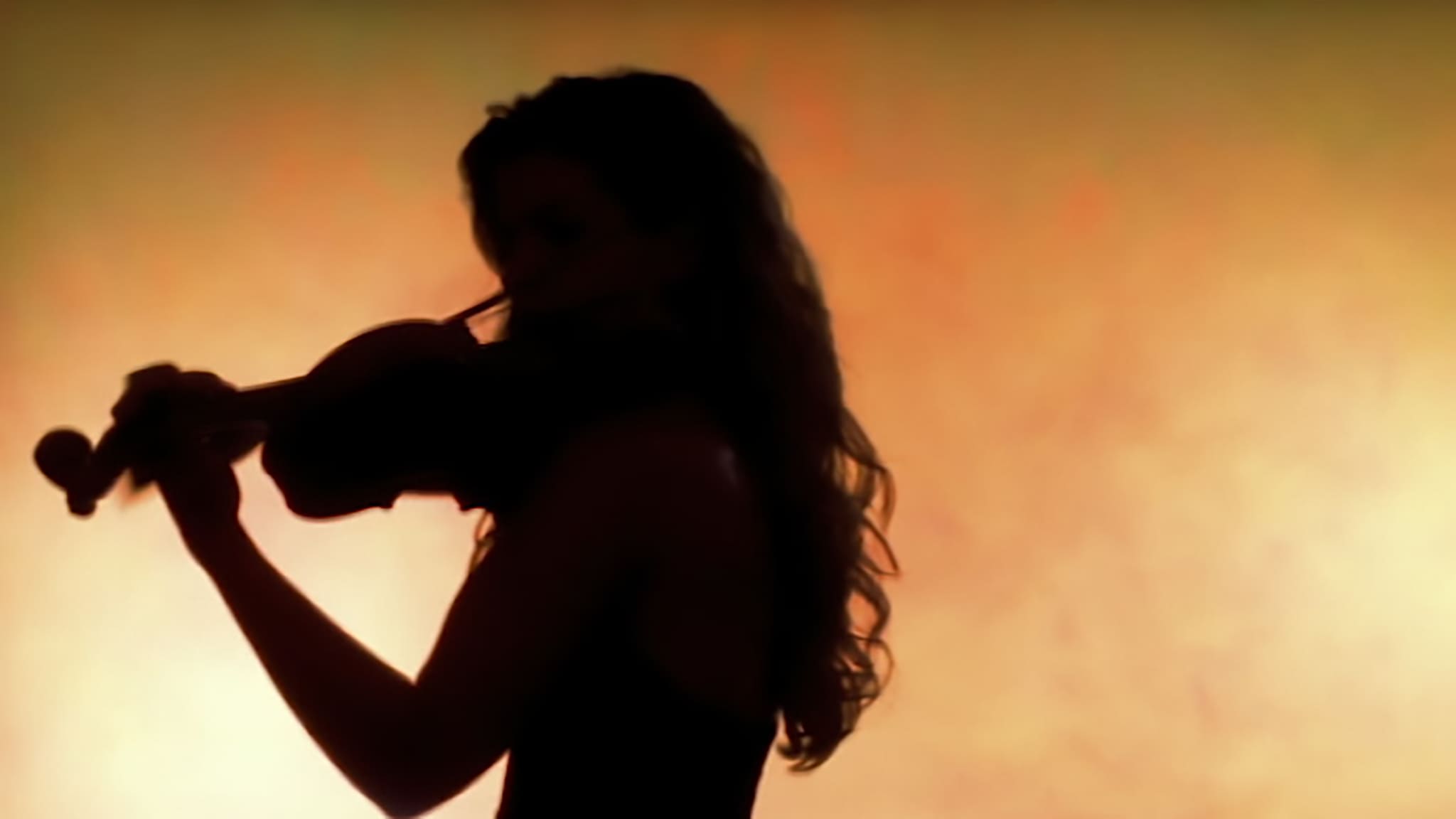AboutAnne-Sophie Mutter
Anne-Sophie Mutter is undeniably one of the greatest violinists of modern times. Her outstanding artistic abilities are evident in the richness of her tone, her unsurpassed expressiveness, her consummate technical virtuosity, and deep musicality. Born in Rheinfelden, Baden, she showed signs of extraordinary talent early on. At the age of five, she began playing the piano, soon after receiving her first violin lessons from Erna Honigberger, a student of Carl Flesch, and at nine, she began her studies with Aïda Stucki, an inspiring Swiss musician and teacher.
Exclusive interviews with Anne-Sophie Mutter Watch on STAGE+
In 1976, Herbert von Karajan heard 13-year-old Anne-Sophie Mutter at a recital during the Lucerne Festival Weeks. The legendary conductor invited the young violinist to make her concert debut with the Berlin Philharmonic at the Salzburg Whitsun Festival in 1977. The partnership continued in 1978 when Mutter made her first recording for Deutsche Grammophon, an album featuring Mozart's Violin Concertos Nos. 3 and 5. Mutter regularly collaborated with Karajan and the Berlin Philharmonic, resulting in a series of landmark recordings of the violin concertos by Beethoven, Brahms, Bruch, and Mendelssohn for the yellow label. Her debuts in Berlin (1978), Washington and New York (1980), Tokyo (1981), and Moscow (1985) garnered critical acclaim, and she soon became a regular presence in the world's most prestigious concert halls.
In 1986, she was appointed to the international chair of violin studies at the Royal Academy of Music in London. The following year, she founded the Rudolf Eberle Foundation, which supported exceptionally gifted young string players across Europe. Since 1997, when the foundation was integrated into the Friends of the Anne-Sophie Mutter Foundation, the organization has operated worldwide. The Anne-Sophie Mutter Foundation itself was then established in 2008. Mutter's commitment to promoting young musicians has contributed to the careers of many significant musicians, including Daniel Müller-Schott, Sergey Khachatryan, Roman Patkoló, Leonard Elschenbroich, and Kian Soltani. In 2011, the violinist founded Mutter’s Virtuosi, an ensemble of former and current scholarship holders of the Anne-Sophie Mutter Foundation and selected other young musicians. Commissioned by the foundation, works such as André Previn's Concerto for Violin and Double Bass and his Nonet for two string quartets and double bass, Krzysztof Penderecki's Duo concertante, Wolfgang Rihm's Dyade, and Sebastian Currier's Ringtone Variations have been created.
In 1986, Mutter gave the world premiere of Chain II, which Witold Lutosławski composed for her and the Paul Sacher Foundation, and recorded the work for Deutsche Grammophon. Her world premieres also include Rihm's Gesungene Zeit and Lichtes Spiel, Penderecki's Violin Concerto No. 2 Metamorphosen, La Follia for solo violin and Duo concertante for violin and double bass, Dutilleux’ Sur le même accord, Gubaidulina's Violin Concerto In tempus praesens, Previn's Violin Concerto "Anne-Sophie," his Violin Concerto No. 2 and his Violin Sonata No. 2, as well as Currier's Aftersong and Time Machines. She has recorded these and other new works for the yellow label, as well as 20th-century masterpieces such as the violin concertos by Berg and Stravinsky and Bartók's Violin Concerto No. 2.
In the late 1990s, Mutter recorded Vivaldi's Le quattro stagioni with the Trondheim Soloists and Beethoven's Violin Sonatas with her regular duo partner Lambert Orkis. The Beethoven recording won a Grammy® and the Echo Prize, while the Vivaldi album received exceptionally positive feedback and sold over 370,000 copies worldwide. Mutter began the new millennium with a series of touring and recording projects, including Back to the Future, a retrospective of significant 20th-century violin works, and Recital 2000, an album of chamber music by Crumb, Prokofiev, Respighi, and Webern. In 2001, Mutter performed all of Mozart's violin concertos over two evenings as artist-in-residence at Carnegie Hall, and with the Vienna Philharmonic in Vienna and on a tour of Germany. Previn's Tango Song and Dance, dedicated to her and premiered by her, was the focus of a recital album released in 2003. Her recordings with Previn as conductor include the award-winning performances of his Violin Concerto "Anne-Sophie" and the violin concertos by Korngold and Tchaikovsky (Echo Prize 2005 for "Instrumentalist of the Year"). The violinist celebrated Mozart's 250th birthday in 2006 with international tours and complete recordings of his violin sonatas and violin concertos.
In 2008, her first Bach recordings for Deutsche Grammophon were released in an album featuring the composer's two violin concertos and the world premiere recording of Gubaidulina's Concerto In tempus praesens. This was followed by a Mendelssohn album to mark his 200th birthday (2009); a complete recording of Brahms’ Violin Sonatas with Lambert Orkis (2010); an album with first recordings of works by Rihm, Currier, and Penderecki (2011); and the release of ASM35, a 40-CD box set containing all of Mutter's recordings for Deutsche Grammophon (2011), issued to mark the 35th anniversary of her professional debut. In June 2013, Anne-Sophie Mutter and the Berlin Philharmonic reunited at the Berlin Philharmonie to make their first joint studio recording in almost 30 years: Mutter's first recording of Dvořák's Violin Concerto was released to critical acclaim in October 2013.
Anne-Sophie Mutter made her Yellow Lounge debut for Deutsche Grammophon in 2013 on a September evening at Berlin's Asphalt-Klub. She repeated this experience in 2015 with two performances at Berlin's Neue Heimat, a converted railway station in the trendy Friedrichshain district. Her performances were recorded live for Deutsche Grammophon's first Yellow Lounge album, released in 2015. The event was also filmed by ZDF for a television broadcast and a later documentary.
In October 2016, the violinist performed in Tokyo with the Vienna Philharmonic and Seiji Ozawa, Mutter’s Virtuosi, and Lambert Orkis, celebrating the 35th anniversary of her Japan debut. In the 2016/17 season, she also celebrated the 40th anniversary of her first appearance at the Salzburg Whitsun Festival with a concert, and at the Tanglewood Festival, she participated in the world premiere of John Williams’ Markings for solo violin, strings, and harp. In 2017, Deutsche Grammophon released her performances of Schubert's "Trout Quintet" and his Piano Trio "Notturno," with Daniil Trifonov and Mutter's Virtuosi as her partners. Her programmatic focus for 2018 was the music of Penderecki, with her recital with Lambert Orkis at Carnegie Hall being particularly noteworthy, where she performed the Violin Sonata No. 2 as part of a program that also included the world premiere of André Previn's The Fifth Season. Her first recording of the Violin Sonata No. 2 appeared on Hommage à Penderecki.
In the 2018/19 season, she played a key role in the DG120 celebrations. In November, at the DG120 Gala in Berlin, she performed the German premiere of John Williams’ Markings and the world premiere of his Across the Stars, based on motifs from Star Wars – both works dedicated to the violinist – with Manfred Honeck and the Staatskapelle Berlin. She also participated in the DG120 Galas in Tokyo and Seoul, the former taking place in the presence of the Japanese Imperial Family.
In April 2019, Mutter and Williams met in Hollywood to record a selection of his film themes in new adaptations he wrote specifically for her. The resulting album, Across the Stars (2019), received an Opus Klassik. For her next album, the violinist recorded Beethoven's Triple Concerto for Piano, Violin, Cello, and Orchestra with Daniel Barenboim, Yo-Yo Ma, and the West-Eastern Divan Orchestra. Released in May 2020, the recording celebrated the composer's 250th birthday as well as the 20th anniversary of the West-Eastern Divan Orchestra, and also appeared 40 years after the now legendary recording of the work that Mutter and Ma made with Herbert von Karajan.
Anne-Sophie Mutter's artistic partnership with John Williams continues to be fruitful. In January 2020, the violinist performed with him at the Vienna Musikverein, where he conducted the Vienna Philharmonic for the first time; the resulting album John Williams in Vienna was released in August of that year. In July 2021, Mutter was the soloist for the world premiere of his Violin Concerto No. 2 in Tanglewood with the Boston Symphony Orchestra under the composer's direction. Her world premiere recording of the work, along with three new adaptations of Williams’ film themes, was released in 2022.
A year later, DG celebrated the artist's 60th birthday (June 29, 2023) with a new, limited-edition five-LP box set containing all her recordings of solo concertos with Karajan and the Berlin Philharmonic. In addition, three central albums from her extensive catalog were digitally re-released (available for the first time in Dolby Atmos): Carmen-Fantaisie, Vivaldi – The Four Seasons, and Mozart – The Violin Concertos. The tributes continued on STAGE+ with the new documentary Anne-Sophie Mutter – Vivace (directed by Sigrid Faltin) and an appearance with Mutter’s Virtuosi at the Vienna Musikverein this summer, as well as a wide range of video-on-demand material.
Anne-Sophie Mutter has long used her public image to support charitable causes, particularly her commitment to alleviating medical and social problems. Her benefit concerts have raised funds for Save the Children Japan and Save the Children Yemen, the Swiss Multiple Sclerosis Society, the victims of the tsunami and nuclear disaster in Japan in 2011, the Haus der Diakonie in Wehr-Öflingen of the Hanna and Paul Gräb Foundation, Artists against Aids in the USA, the Bruno Bloch Foundation, the London-based Beethoven Fund for Deaf Children, SOS Children's Villages in Syria, the Leipzig Refugee Council, and the "Healing Arts Program" at the Fred and Pamela Buffett Cancer Center (Omaha).
Mutter's numerous awards and accolades reflect her humanitarian work as much as her artistic abilities. She has won three Grammy® Awards for "Best Instrumental Soloist Performance (with Orchestra)," received the Ernst von Siemens Music Prize in 2008, was inducted into the Legion of Honor in 2009 for her contributions to contemporary French music, and in 2011, she received the Erich Fromm Prize for promoting humanism through social engagement. Her other honors include the German Federal Cross of Merit 1st Class, the Mendelssohn Prize and the Brahms Prize, the Herbert von Karajan Music Prize, and the Bavarian Order of Merit.
In 2013, Anne-Sophie Mutter became an honorary foreign member of the American Academy of Arts & Sciences, in 2015 she was appointed an honorary fellow of Keble College, Oxford, and in 2016 she received the Gold Medal of Merit in Fine Arts from the Spanish Ministry of Culture. In November 2017, she was appointed Officer of the Romanian Order of Cultural Merit and Commandeur of the French Ordre des Arts et des Lettres. In February 2018, she became an honorary member of the Accademia Nazionale di Santa Cecilia, and four weeks later, she received the golden Gloria Artis Medal for cultural merit in Poland. In 2019, she was among the laureates of the Swedish Polar Music Prize and received the Japanese Praemium Imperiale for Music. In 2022, she was awarded an honorary doctorate from the Krzysztof Penderecki Academy of Music in Krakow.
7/2023


